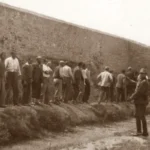As Australia’s energy crisis deepens, the looming shortage of natural gas on the east coast is becoming a stark reality.
With domestic production stymied by regulatory uncertainty, activist opposition, and green tape, Australia could soon face higher energy prices and risks of blackouts. Yet, amid this dire outlook, the Beetaloo Basin in the Northern Territory presents an opportunity to safeguard the country’s energy future. But will we seize it?
The Beetaloo Basin, an underdeveloped reserve containing over 500 trillion cubic feet of natural gas, could provide enough energy to power Australian homes for 400 years. Gas company Tamboran is preparing to start drilling in the region, which is hailed by industry leaders for its low-cost, low-emission potential. Adam Watson, CEO of the APA Group, called Beetaloo “the most promising solution” to the east coast gas shortage. But his optimism is tempered by concerns that activist groups will use lawfare and environmental challenges to delay or block the project.
These delays are not hypothetical. In New South Wales, a similar project by Santos has been delayed for over a decade, while the Federal Court recently found that activist groups had deliberately sabotaged Santos’ efforts to build critical infrastructure. This is a dangerous trend. As Samantha McCulloch from Australian Energy Producers warns, we are “sleepwalking towards a gas supply cliff.” If governments do not act to clear the hurdles for these essential projects, we risk escalating energy costs, lost manufacturing jobs, and a potential collapse of energy security.

The Northern Territory government has given the green light to gas exploration in the Beetaloo Basin, having lifted a ban on unconventional shale gas developments in 2022. This decision was made after a thorough enquiry that found risks associated with fracking could be managed with proper safeguards in place. Tamboran, the company driving the project, has committed to working closely with traditional landholders, addressing concerns about environmental and cultural heritage risks. The development of Beetaloo could offer not only a solution to the energy crisis but also local economic opportunities for indigenous communities.
Critics of the project argue that any expansion of gas production will undermine Australia’s transition to renewable energy. However, Tamboran’s CEO, Joel Riddle, has pointed out that the Beetaloo Basin’s gas is relatively low-carbon compared to other reserves and could play a crucial role in supporting Australia’s transition to a low-emissions energy grid. This is particularly important as renewable sources alone cannot yet meet the country’s energy demands.
In the face of mounting energy challenges, the Beetaloo Basin offers a critical opportunity for Australia. However, this potential will only be realised if governments take decisive action to remove the barriers hindering its development.
With energy prices skyrocketing, the choice is clear: we must act now to secure a reliable, affordable energy future. Australia cannot afford to let legal and activist challenges undermine our energy security any longer.












